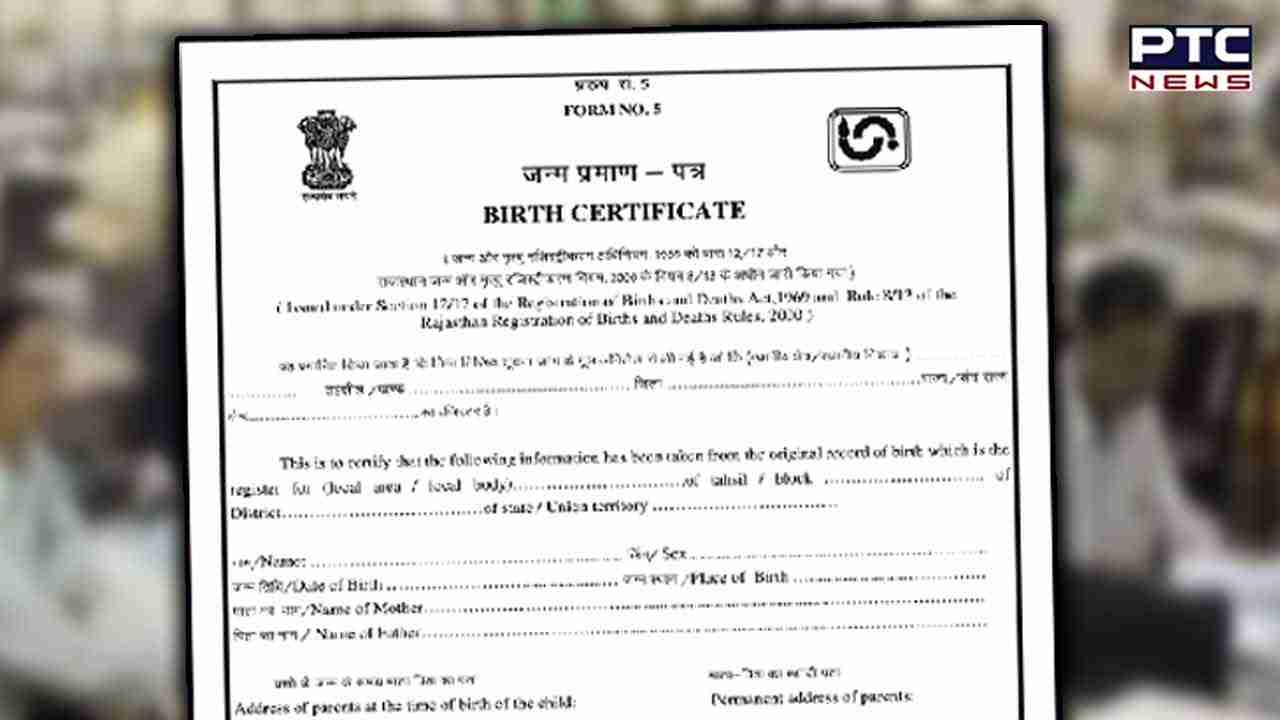

Birth certificate alone valid for Aadhaar, education, licence and more; check details
New Delhi, September 14: Commencing October 1, 2023, the Registration of Births and Deaths (Amendment) Act, 2023 will enable the utilisation of a birth certificate as a sole document for purposes such as educational institution admissions, driver's license issuance, voter list compilation, Aadhaar registration, marriage registration, government job appointments, and any other purposes determined by the Central Government.
In a notification released on Wednesday, the Union Ministry of Home Affairs announced that the provisions of the Act will be enforced from October 1. This move is set to facilitate the establishment of a comprehensive national and state-level database containing records of registered births and deaths. The primary objective behind this initiative is to enhance the effectiveness and transparency of public service delivery and social benefits. Additionally, it will streamline the process of digital birth and death registration.
"In exercise of the powers conferred by sub-section (2) of section 1 of the Registration of Births and Deaths (Amendment) Act, 2023 (20 of 2023), the Central Government hereby appoints the 1st day of October 2023, as the date on which the provisions of the said Act shall come into force," the notification said
During the recently concluded Monsoon Session, both Houses of Parliament approved the Registration of Births and Deaths (Amendment) Bill, 2023. The Rajya Sabha passed the Bill through a voice vote on August 7, while the Lok Sabha had earlier approved it on August 1. The Bill, which sought amendment to the 1969 Act, was piloted by Union Minister of State for Home Nityanand Rai.
The Act grants authority to the Registrar General of India for the maintenance of a comprehensive national registry containing records of both births and deaths. Under this legislation, Chief Registrars, who are appointed by states, and Registrars, designated by states for specific local areas, will have a mandatory responsibility to share data pertaining to registered births and deaths with the national database. Additionally, the Chief Registrar will be tasked with overseeing a comparable database at the state level.
Earlier, there was a requirement for certain persons to report births and deaths to the Registrar.
For example, the medical officer in charge of a hospital where a baby is born must report the birth. The new Act adds that, in cases of births, the specified persons shall also provide the Aadhaar number of the parents and the informant. This provision also applies to the jailor in case of births in a jail, and the manager of a hotel or lodge in case of births in such a place.
Further, it expands the list of specified persons to include adoptive parents for non-institutional adoption, biological parents for births through surrogacy, and the parent in case of birth of a child to a single parent or unwed mother.
The new legislation states that the national database may be made available to other authorities preparing or maintaining other databases. Such databases include population register, electoral rolls, ration cards, and any other national database as notified. The use of the national database must be approved by the central government.
Similarly, the state database may be made available to authorities dealing with other state databases, subject to state government approval.
As per the Act, any person aggrieved by any action or order of the Registrar or District Registrar may appeal to the District Registrar or Chief Registrar, respectively. Such an appeal must be made within 30 days from receipt of such action or order. The District Registrar or Chief Registrar must give their decision within 90 days from the date of appeal.
- ANI
